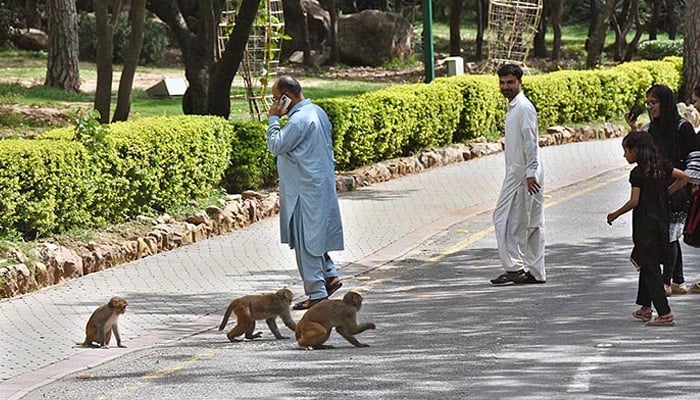'Artificial feeding to monkeys can disrupt ecosystem', wildlife experts warn tourists
"Feeding monkeys disrupts natural feeding behaviour, makes them dependent on humans for food," expert says
March 14, 2024

PESHAWAR: Artificial feeding could lead to long-term problems for the wild population, animal conservationists and wildlife experts have issued a warning against feeding monkeys in Galiyat.
The warning was issued after calls have been made on social media for donations to help provide food for the starving monkeys during this time when tourists are not visiting.
Some posts are also urging visitors to bring extra food or bread for distribution to the monkeys whereas, conservation experts have emphasized the negative impact of feeding wild animals.
A wildlife expert, Dr Muhammad Kabir cautioned that feeding monkeys disrupts their natural feeding behaviour and can make them dependent on humans for food.
This artificial feeding can lead to long-term problems for the wild population, he added.
Meanwhile, the Manager of WWF Pakistan, Muhammad Waseem highlighted the importance of allowing animals to find food naturally in their habitat.
He said that feeding monkeys can disrupt the ecosystem and affect the animals'' contribution to plant regeneration through seed distribution.
In addition, a Field Assistant Common Leopard WWF-Pakistan, Sajid Hussain warned about the increasing incidents of monkey bites, which can lead to the risk of rabies.
He stressed the need for education on the impact of providing food to wild species and called for signboards to be displayed in Galliyat to raise awareness among tourists.
Experts have urged people to refrain from feeding monkeys in the wild to protect their natural behaviors and ensure the well-being of both the animals and the ecosystem.









